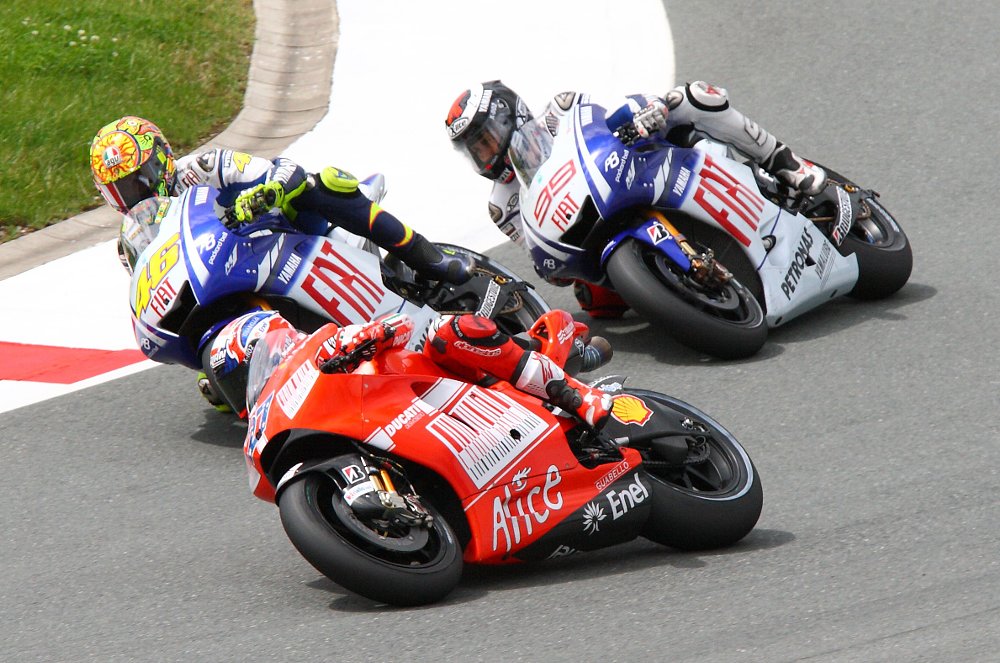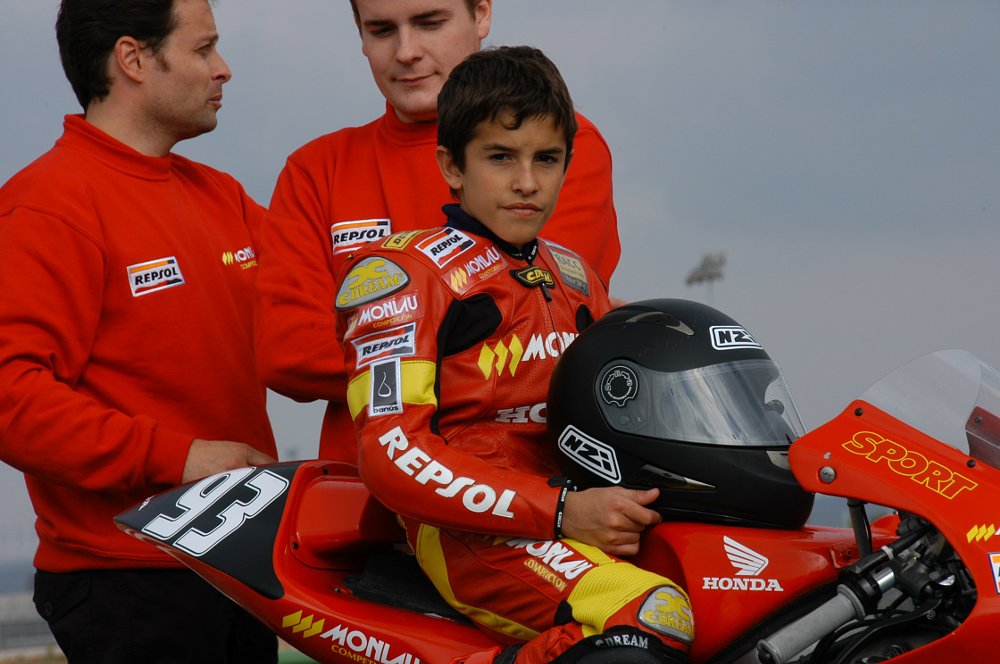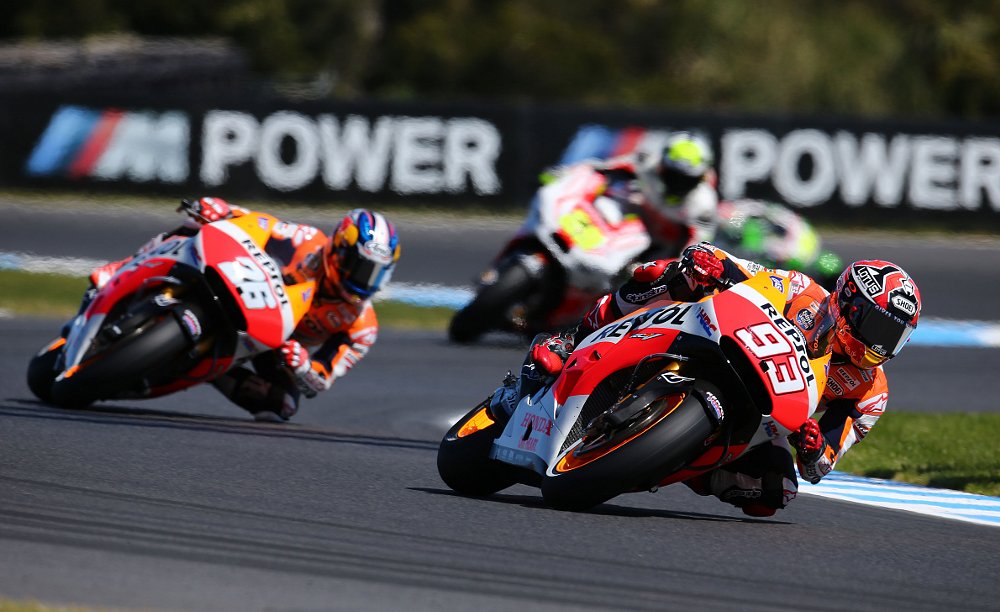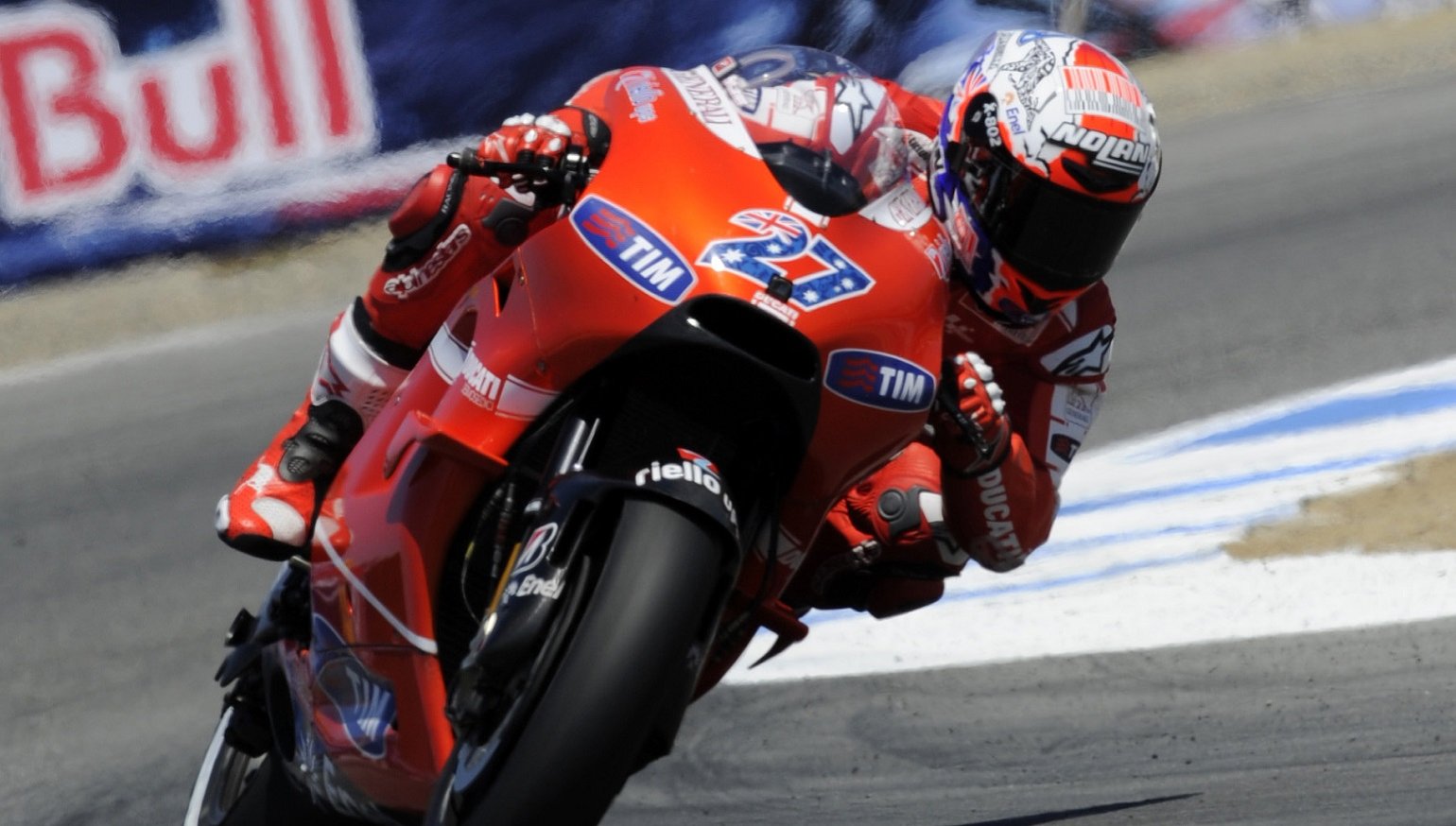Those of you who follow MotoGP know what an “alien” is: a rider who is head and shoulders above the rest of the field.
They possess a level of skill, refinement, feel, racecraft, technical understanding, physical fitness, and most of all, mental acuity, the other riders simply do not. Other sports have these figures: Michael Jordan, Venus and Serena Williams, Tiger Woods, Roger Federer, Lionel Messi, etc.
Editor's note: Dylan Code is a rider coach and the COO (stands for child of owner) of the California Superbike School, with 23 years of full-time experience in the area of rider training. He works closely with his father, Keith Code, on curriculum development and figuring out how to provide the best possible motorcycle riding experience for their students.
In MotoGP these riders are referred to as aliens because they seem to be from another world. Over the past 15 years, the riders dubbed aliens were a small fraternity. While open to debate, the following names reappear in conversations: Valentino Rossi, Casey Stoner, Dani Pedrosa, Jorge Lorenzo, and Marc Márquez. Those five riders have tallied up a disproportionate number of wins, podiums and pole positions. Collectively their monopoly of trophies across all three classes stacks up like this: 364 wins, 763 podiums, and 316 pole positions. There are riders who, in their entire careers, never achieved a win or pole in the premier class! There are some who celebrate their one and only maiden MotoGP victory for the rest of their lives. It’s worthy of celebration — because they beat an alien.

What makes an alien different? It’s not just a statistical outlier that’s unlikely to be repeated. There must be some common thread that binds these outstanding riders and explains their success. We know having a good team and equipment is a major part of the battle, but these teams know what they are looking for and choose the best. Teams choose great riders far more often than they make great riders.
Malcolm Gladwell made the “10,000 hours to become an expert” rule popular in his book "Outliers." Some have refuted his claim, saying deliberate practice alone was not enough. We know each of these riders had thousands of hours of riding before graduating to the highest levels, so that’s definitely a key ingredient — but there must be something more.
At the California Superbike School, our graduates have gone on to win 92 world and national championships. We have seen our share of champions in their formative years at various stages of development. While there are certainly boxes that need to be checked on one’s progression to being a top-level rider, these five aliens seem to have an X-factor outside mere training and practice. It seems to go further.
There are so many factors that add up to becoming an alien that one can only speculate on what it takes, but something struck me years ago watching these aliens as they were emerging. I noticed something changing over the years. Decades ago it was very common to see an outstanding rider pull to a considerable lead and then “take it easy” to bring the win home — not make any mistakes to jeopardize the victory. This new breed of aliens, however, would push hard to gain an advantage, develop a nice buffer over second place, and continue to knock off lap after lap at that same blistering pace all the way to the checkered flag. No mercy, just peeling off lap after lap of perfection. I recall one race where Jorge Lorenzo led from pole and did 16 laps in a row all varying by just 0.5 seconds.
While there isn’t just one ingredient that makes an alien, I believe it’s partially due to their ability to maintain a sustained focus on their task. An average person rarely maintains an unbroken period of high concentration for more than just a few seconds during a normal day. Many popular sports have breaks between plays, or play is frequently stopped due to a penalty. I’d be interested in hearing from the readers what other activities require 30 minutes plus of extreme mental focus without breaks. They exist but there are not many.

Where does this ability to focus come from? My opinion is simple: They were brought up from an early age in an extremely competitive environment. Their racing required total concentration. One missed shift would cost one or two places in any race. I’ve seen dominant mini racing champions in the United States go to Italy or Spain to race with the kids over there only to find themselves barely fast enough for a mid-pack result. Once immersed in that environment, they would ascend, slowly. Along with the riding skills, the ability to focus is developed. It’s one thing to do a fast lap. It’s quite another to do 30 fast laps in a row.
In the current era, the lines are becoming blurred on who is an alien, and who is merely a great rider. Last season saw many new winners in Márquez’s absence. Competition in the European classes leading to MotoGP is extremely close. In Moto3, it’s hard sometimes to tell the difference between the last lap and the first lap by how close the riders are for the entire duration of the race. Moto2 lap times often have the top 20 riders within a second and by the time an outstanding rider graduates to MotoGP they have polished their mental focus to a razor’s edge. Point being, the current level of competition is starting to breed aliens in greater quantity.

Going back to Márquez, no matter how fast his competition was, he would turn it up a little more. If they were riding at 98 percent, he would turn it up to 99 or 100 percent. But what happens when some of his competitors turn it up to 100 percent? He would turn it up to 100 percent and leave it there for a sustained period of time — the only way to gain an advantage over his worthy opponents.
This, of course, is the zone where mistakes and crashes happen more often. In the MotoGP class alone, Márquez has tallied 121 crashes. If you want that win and free bottle of champagne, it’s going to take some risk, and more risk than in previous eras.
The current era is creating a large number of truly outstanding riders and I believe an important ingredient for excellence is being immersed in a level of competition that develops rare levels of sustained mental focus. Alien-level focus.












